
Updated on: April 22, 2024
On average, hackers infiltrate unsuspecting users’ computers every 39 seconds. A third of all Americans will be hacked every year, and the numbers are still growing.
As cybercrime continues to skyrocket, protecting your sensitive data, like online banking details and personal information from theft should be a top priority – and using a firewall is the first line of defense.
What Is a Firewall and How Does It Work?
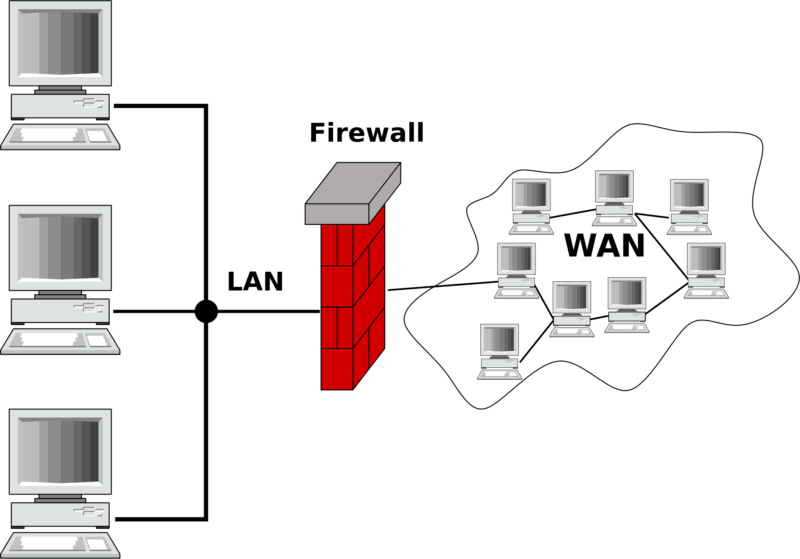
A firewall regulates connections between devices on your local network, the LAN, and the outside world. When you browse the internet or use a VOIP program like Skype to make a call, your computer communicates with the Wide Area Network (WAN) by exchanging packets of information over designated ports; these differ according to the application type. These packets travel both from the outside network to the computers on the LAN during the downlink (such as when you’re downloading a file from the internet), and in the opposite direction during the uplink (such as when you’re uploading a video to YouTube).
In a nutshell, firewalls are hardware or software used to prevent unauthorized access to your computer network.
They can be used by both individuals and large businesses to filter the information going in and out of your computer via the internet. If the firewall filter catches anything suspicious, it denies it access to your computer system and private network.
Firewalls are vital for stopping dangerous or fraudulent traffic from accessing your network. They block specific programs from accessing the internet if the activity is deemed too risky.
In this day and age, every computer needs a firewall in order to protect sensitive data. The question is whether a firewall alone is enough to fully protect your PC.
What Kind of Attacks Do Firewalls Protect Against?
Firewalls prevent cybercriminals from gaining access to your personal information. The issues include, but are not limited to:
- Backdoor Access: A backdoor refers to any security holes or bugs that, when exploited, allow unauthorized control over the program. Even entire operating systems like Windows can have backdoors, and an experienced hacker knows how to take advantage of them.
- Remote Login Hijacking: A remote desktop allows you to connect and control your computer from another location over the internet. However, hackers can hijack the login, access your machine, and steal your files.
- Email Abuse: This type of attack targets an individual in which the perpetrator sends thousands of emails to clog the victim’s inbox. Spam email is also popular and while most is merely annoying, some may contain viruses and malware.
- Source Routing: When data packets are traveling through an online network, they are typically “passed along” by multiple routers before reaching their destination. Some hackers take advantage of this system by making malicious data packs look like they’re coming from a trusted source. Many firewalls disable source routing for this reason.
What Else Are Firewalls Used For?
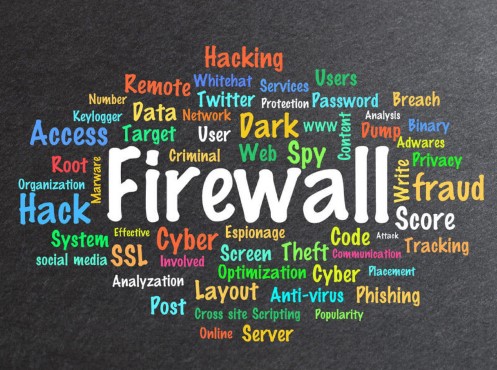
Firewall programs can sometimes be used as proxy servers. Whenever you access a web page, the proxy server receives the data first before forwarding it to your computer. This setup has a few benefits:
- The server that holds the web page doesn’t directly interact with your machine, reducing the chances of a malicious webpage infecting your computer.
- Your computer’s online network address is hidden.
- A version of the web page is saved in the proxy server’s cache memory, enabling faster loading if you revisit the page in the future.
On top of the proxy server, firewalls occasionally offer a DMZ (Demilitarized Zone), or a perimeter network that houses low-risk files and clients that are outside the main firewall. Since companies mainly use this feature, individuals most likely won’t have to worry about it.
Firewall Pros & Cons
There are many advantages to running a firewall on your computer. The increased security they provide is worth the price of a few notifications and warning pop-ups.
Pros
- A firewall will ensure any program you run has its online access monitored and verified. Network traffic that could signal an unsecured transfer of sensitive data will be controlled through your firewall.
- Many solutions will notify you when the firewall filters out any connections. That way you are aware when something happens.
- Some firewalls come with extra features to enhance your cybersecurity. We’ll touch more on that later.
Cons
- A firewall acts as a security checkpoint for data packets entering and leaving your network. Like any security checkpoint, false positives occasionally come up. You may find that your firewall accidentally blocks a genuinely secure webpage you want to access.
- Certain features can take up too much processing power.
How to Deal with False Positives
If your firewall impedes your work by blocking too many packets, you should consider checking the settings and adjusting the intensity of the firewall filters. Finding a balance between security and ease of use may prove a challenge at first.
Disable too many features, and you’ll be more vulnerable to attacks. Set the filter intensity too high, and you’ll run into issues with improperly blocked content.
Here’s how to find and configure the settings that allow approved programs and connections. We used Windows Defender’s firewall for Windows 10 as an example:
- Open Settings
- Select “Firewall & network protection” from “Windows Security”
- Click “Allow an app through firewall”
- On the following window, find the affected programs on the list and allow connections through either Private or Public networks
You can decide which online connections are private or public networks when you connect to a new hotspot. In general, public networks are reserved for coffee shop Wi-Fi networks and other public areas. Private networks are for your home or work connections.
Does a Firewall Alone Offer Enough Protection?
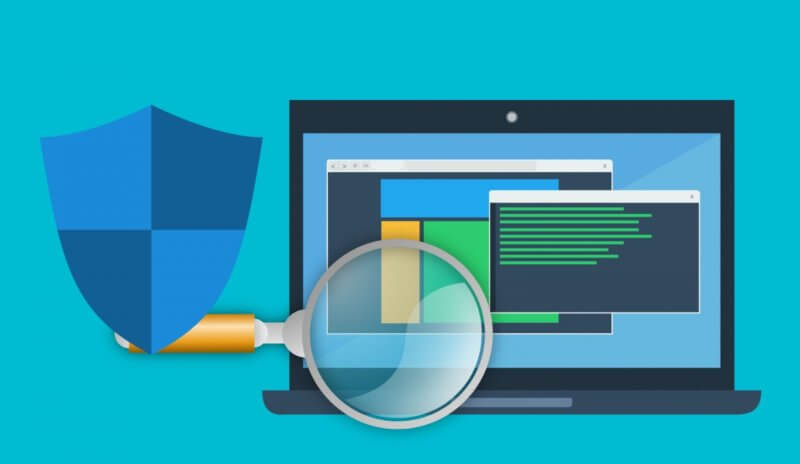
Not if you want all-around protection and the ability to remove threats. While a firewall is an essential aspect of digital security, in many cases you will need the additional help of an antivirus.
If you regularly connect to public, unsecured Wi-Fi networks, a firewall mainly serves as a preventative measure against malicious online attacks. Once a virus has managed to breach your computer, you need an antivirus to remove it.
Keep in mind that not all firewalls are created equal. The Windows Defender default firewall is useful but somewhat barebones feature-wise. You need to ask yourself the following questions:
- Do you want more advanced firewall protection or special functions like dual-layer virus protection?
- How about a detailed report of what programs are attempting to access your device? These needs call for dedicated firewall solutions.
- Are you looking for a free firewall or a feature-rich paid version?
There are many capable firewall options on the market, but you have to decide which one is right for you.
What Are Some Good Firewall Recommendations?
A good firewall does its job effectively, offers extra functionality, and runs without negatively impacting your system’s performance.
Conveniently, some antiviruses come bundled with firewalls, covering both of your cybersecurity needs with just one program.
What’s the difference between the paid versions and free versions? We’ll take a look at the pros and cons of each.
Paid Options
1. Avira
A budget option with some free features, Avira (see user reviews) comes with a comprehensive firewall that covers bots and worms trying to break through your network. Other functions include:
- A password manager
- Secure logins free from keyloggers and spyware
- A program updater
Pros
- Free online protection
- Good antivirus performance
- Gaming mode included
Cons
- Extra charge for mobile protection and parental controls
- The free version includes advertisements for the paid version
2. Intego
Here’s one for the Mac users. Intego (see user reviews) keeps all of its tools in a single folder for easy access. The NetBarrier function automatically detects home and public Wi-Fi networks and sets firewall settings accordingly. Other tools included are:
- Parental controls
- A Washing Machine that checks for dated software
- VirusBarrier, a strong shield against viruses
Pros
- Specifically designed for Mac computers with excellent protection
- Compatible versions for iPhone and iPad
Cons
- Weak protection against Windows malware. If your macOS machine is connected to any Windows devices, there’s no guarantee they will be protected
3. Bitdefender
Bitdefender (see user reviews)
is widely recommended and often cited as an excellent antivirus/firewall combination for protecting against viruses, rootkits, and Trojans. It’s available for Windows and Mac, though the Mac version is limited. The feature set includes:
- A software updater that automatically finds out-of-date programs on your computer – dated software is a massive target for hackers
- Parental controls that filter out online content such as violence and pornography
- A password manager
- Webcam locking to prevent unauthorized access
Pros
- Firewall settings are configured out of the box which is great for beginners
- Effective at removing threats
Cons
- You have to pay extra for mobile protection
Free Options
1. Windows Defender Firewall
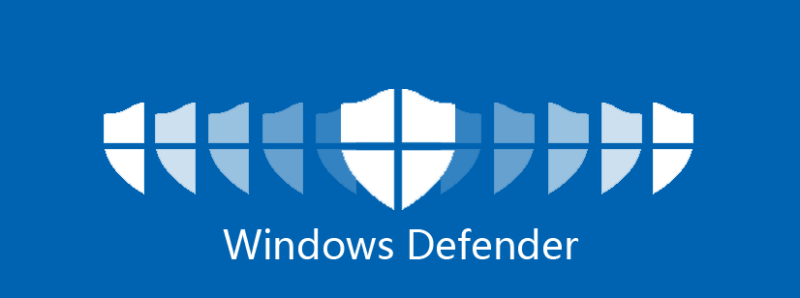
Windows Defender (see user reviews)
should be familiar to Windows users. This firewall and antivirus come free and pre-installed on Windows 10 machines. Overall, it’s a satisfactory solution for light users.
- Basic configuration settings allow for controlling specific programs and managing rules for incoming and outgoing network traffic
- Network troubleshooter
Pros
- Free for Windows 10 users
- Light on system resources
- Notifications for blocked content
Cons
- Somewhat barebones when it comes to features
- Detection rates for malware aren’t as high as other options
2. Comodo Free Firewall

is another free firewall solution for users looking for a bit more potency than what Windows’s default offers. Comodo features include:
- A monitor for suspicious programs and activity
- A sandbox mode, the main selling point in which you can visit web pages and run programs in a safe zone to test what they do before running them on your actual machine
- Web filtering for malicious URLs
Pros
- The user can make rules for individual programs and networks easily
- Unique sandbox mode, a rarity with free programs
Cons
- The installer attempts to add Comodo Dragon browser. Be careful to uncheck this option when installing
3. GlassWire
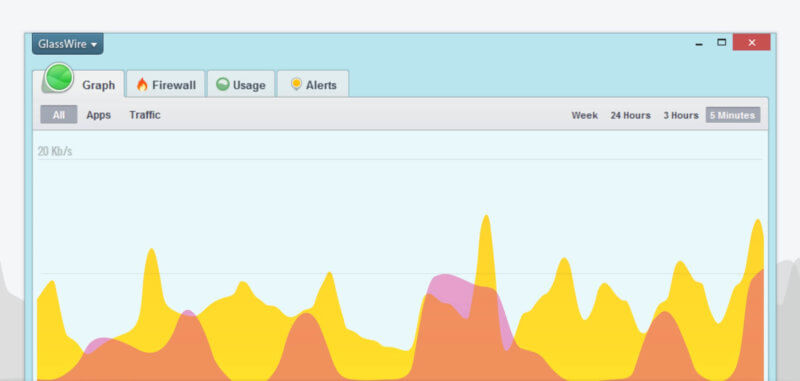
GlassWire is the ideal firewall for users wanting information and statistics on their network activity in addition to scanning for suspicious connections.
Pros
- Charts out your network usage, such as what programs are using the network, how much data is being used, and what suspicious actions are being done
- Notifications whenever a new program wants online access
- Attractive user interface
Cons
- Complex features make it difficult for new users to grasp
- Webcam monitoring and data storage for older scans are offered but behind a paywall
Firewalls Alone are Not Enough
The internet can be a pretty dangerous place, with unsafe websites, hackers, and malicious programs at every turn. Therefore, you must safeguard your system with a trustworthy antivirus program and a reliable firewall.
Protective software might occasionally slow down your computer slightly, but it plays a pivotal role in safeguarding your sensitive data from cybercriminals.
But you don’t necessarily have to splurge on two separate software programs for all-around protection. Many antivirus programs come with firewall protection so you can get what you need with one payment.